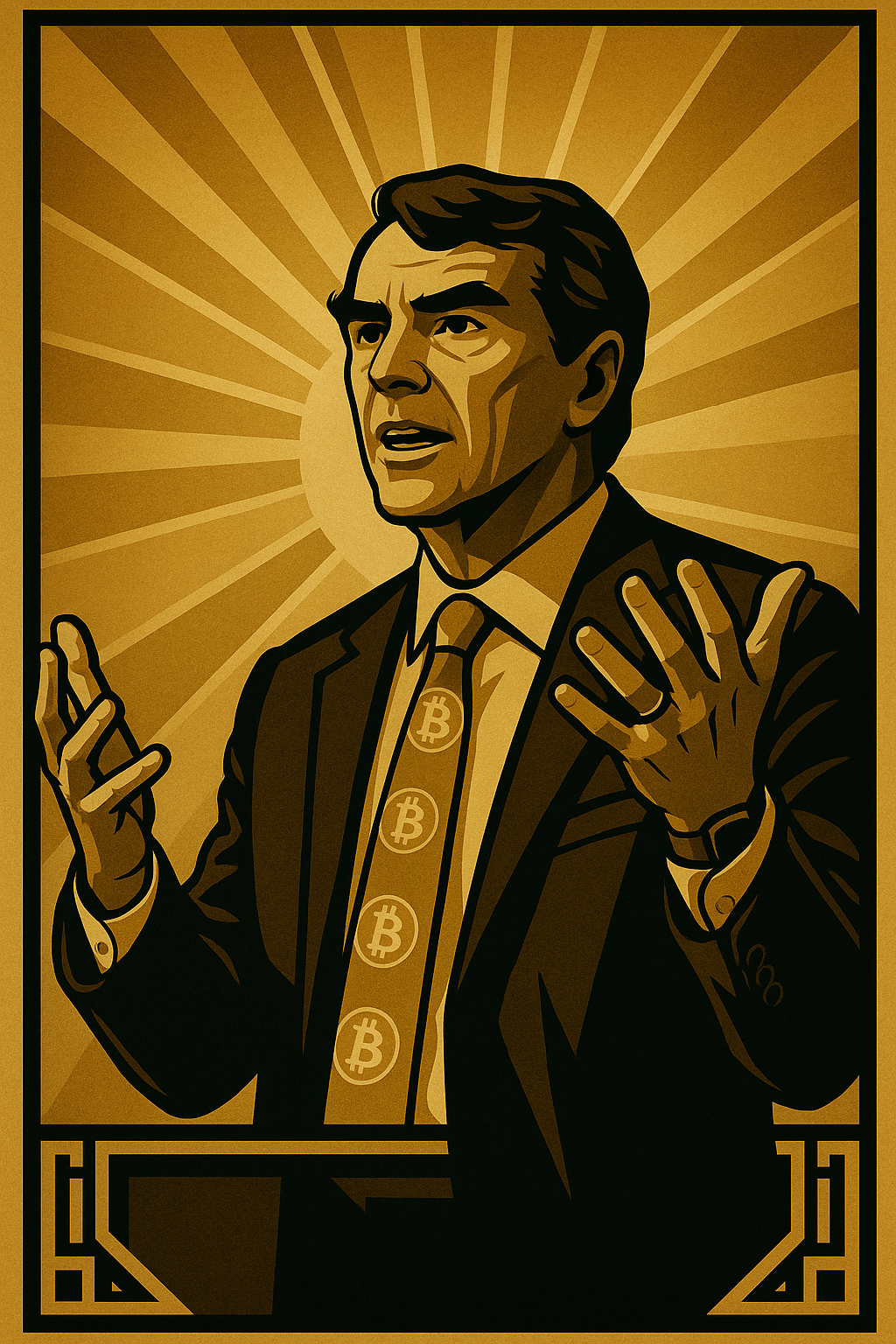Advice from Tim Draper to Capitalists
In a world where many capitalists remain silent about the system that enabled their success, venture capitalist Tim Draper is refreshingly vocal. A tireless champion of innovation, entrepreneurship, and economic freedom, Draper’s unapologetic defense of capitalism isn’t just theoretical—it’s lived, invested, and institutionalized in everything he touches, from early Bitcoin bets to Draper University.
Speaking with Draper in early 2025, his energy is unmistakable. The timing is crucial. After years of regulatory headwinds, he sees a turning point in U.S. policy, particularly toward crypto and innovation.
“This is the first administration in America to recognize the importance of Bitcoin, blockchain, smart contracts, airdrops—all the technologies that are going to reshape finance,” Draper says. “They're finally encouraging entrepreneurs again.”
For Draper, crypto isn’t a niche technology—it’s a global equalizer. It brings financial inclusion to the unbanked and expands the economic pie for all. He cites examples from around the world: Bitcoin in everyday commerce in El Salvador, blockchain-based identity systems, and a swelling tide of decentralized finance that empowers billions.
He’s thrilled that, for the first time, America may not be left behind. “Entrepreneurs used to tell me they had to build in Singapore, geo-fence the U.S., or exclude American users entirely,” he says. “That’s not innovation-friendly. But now I think I can stay in America—and innovation will thrive again.”
Draper’s confidence isn’t just ideological—it’s predictive. He famously forecast Bitcoin would hit $10,000 back when it was $180. That prediction came true in 2017, almost to the day. His next big call: Bitcoin at $250,000. “We may blow past that this year,” he says. “It might even be conservative.”
But Draper’s passion for Bitcoin is part of a broader thesis: that freedom and trust are the magic behind American innovation. “Silicon Valley worked because of those two things—freedom to experiment, and trust in entrepreneurs,” he says. “When regulation gets heavy and trust erodes, people stop creating here.”
He points to the Draper Innovation Index, which ranks countries by how friendly they are to entrepreneurs. While the U.S. remains on top, he warns that others—Singapore, Switzerland, the UK—are closing in fast. “If we don’t fix our regulatory state, we’ll lose the edge.”
So what should be done?
“Deregulate. Shrink bureaucracy,” he answers immediately. “Not necessarily government, but the bureaucracy. It’s just people creating rules that strangle business. I don’t want to think about the SEC or FDA the moment I come up with an idea.”
He proposes simplifying taxes too. “We don’t need volumes of toxic tax code,” he says. “Make it 10% on your first million, 20% on the next ten million, 30% after that. Flat, simple, no loopholes.”
He believes common-sense reforms like that could unite the country. “Democrats and Republicans both like it. It treats everyone equally.”
For Draper, these are not abstract policy debates. They’re deeply tied to human flourishing. He draws sharp lines between capitalist and socialist systems—and uses data to drive the point home.
“People say socialism worked in Sweden,” he says. “But look at the numbers—Sweden’s growth came after they added more capitalism, not more socialism.” He contrasts Cuba and North Korea—where socialism dominates—with South Korea’s vibrant, free-market success. “South Koreans earn 460 times more than North Koreans and are four inches taller on average. That’s capitalism at work.”
Yet in the U.S., too many capitalists are hesitant to speak up.
“When a country gets wealthy, it breeds a culture of envy,” Draper warns. “People want to tear down Elon Musk or Jeff Bezos. But they should be celebrated. Elon is saving the planet—or getting us off of it. Bezos gets me a toothbrush in four hours. These people are heroes.”
He’s not afraid to call out the corrosive effects of envy-driven politics. “It creates a culture of need rather than opportunity,” he explains. “People start thinking, ‘If I need more, I’ll get more.’ That erodes self-reliance.”
His prescription is clear: simple rules, universal enforcement, and a renewed emphasis on entrepreneurship. That’s part of why he founded Draper University of Heroes, a school designed to train the next generation of innovators.
“When people said entrepreneurship can’t be taught, I asked, ‘How would I teach it?’” Draper recalls. The answer: experiential learning, real-world challenges, discomfort, and resilience. “It’s not lectures. It’s survival training for entrepreneurs—physical, emotional, intellectual. We train people to lead.”
The university eschews accreditation and nonprofit status intentionally. “We’re not here to check bureaucratic boxes. We’re here to promote freedom and trust.”
And it’s working. Students heard about Bitcoin five years before it hit mainstream universities. One used his Bar Mitzvah money to buy crypto—he later funded his startup with it. Alumni have launched major blockchain ventures like Tron and Quantum.
Draper believes a free market in education is just as essential as in business. “Public education used to be number one in California. Now it’s near the bottom,” he says. “We need money to follow the student. Let parents choose. Let principals hire and fire.”
As the conversation closes, Draper returns to first principles: work, dignity, and service.
“Everyone I know who works is happy. Doesn’t matter if it’s flipping burgers or founding a company—they have pride. The ones who stopped working? They’re miserable. Addicted. Lost. Work gives us purpose.”
And that’s the heart of capitalism, for Draper—not just wealth, but meaning.
“Capitalism isn’t perfect,” he admits. “But it works. And every attempt to replace it has failed. So if you want more freedom, more dignity, more opportunity—stand up for capitalism.”
In an era of economic doubt and regulatory uncertainty, Draper offers a powerful reminder: the path to a more prosperous, purposeful society isn’t through control. It’s through freedom. The kind of freedom that lets entrepreneurs try, fail, try again—and change the world in the process.



